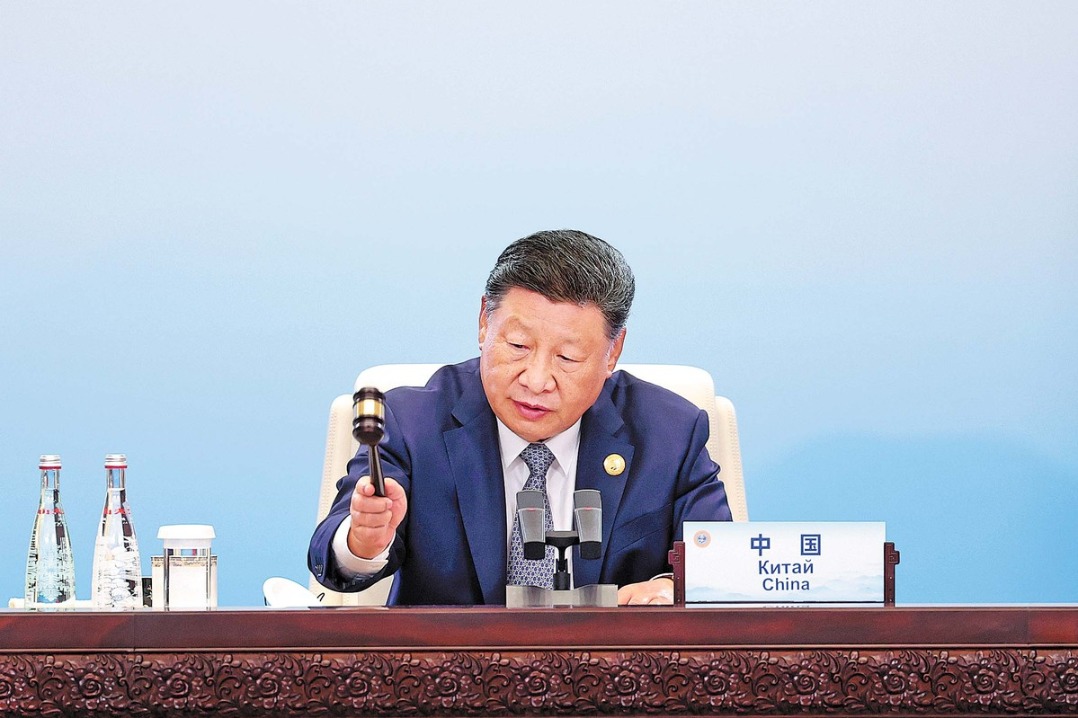New guideline aims to combat illegal fishing and strengthen port oversight

China has implemented a new guideline to combat illegal fishing and strengthen port inspections of foreign fishing vessels, aiming to fulfill its obligations as a responsible nation engaged in the fishing industry and enhance global fisheries governance, according to the Ministry of Agriculture and Rural Affairs.
The guideline — jointly released by the ministry and five other departments, including the Ministry of Foreign Affairs, the Ministry of Transport and the General Administration of Customs — calls for stricter port state controls in line with international rules.
It urges authorities nationwide to strengthen monitoring of foreign fishing vessels entering Chinese ports, as the country is committed to the Agreement on Port State Measures to Prevent, Deter and Eliminate Illegal, Unreported and Unregulated Fishing — a United Nations Food and Agriculture Organization treaty regarded as the most important global instrument against illegal fishing. China formally joined the agreement in April.
While highlighting "zero tolerance" toward illegal fishing, the guideline also requires greater efforts to protect marine resources and promote sustainable use. Authorities are ordered to enforce port entry reviews, publish designated port lists, implement vessel entry reporting and deny entry to vessels involved in unlawful activities, it said.
Additionally, authorities are tasked with conducting impartial inspections of incoming vessels, standardizing port services, improving information sharing, strengthening the management of Chinese-flagged fishing vessels, and safeguarding the legitimate rights and interests of vessels.
The release of the guideline provides strong institutional support for implementing the agreement, the ministry said.
Luo Yi, vice-president of Shanghai Ocean University, said the agreement is meant to block illegally caught fish from entering domestic and international markets through ports.
China aims to strictly implement port entry measures by designating a list of inspection ports, defining the scope of vessels subject to oversight, and enforcing pre-arrival reporting requirements, Luo said at an earlier news conference.
Meanwhile, China is working to revise its fisheries law to better align with the agreement. Lawmakers deliberated draft revisions to the Fisheries Law in June, which include provisions supporting port state measures and provide a legal foundation for enforcement.
The latest guideline also calls for stronger coordination and broader international cooperation in fisheries enforcement.
Sun Haiwen, deputy director of the ministry’s bureau of fisheries, said China has signed more than 20 bilateral fishing cooperation agreements and is a member of eight regional fisheries management organizations.
The country is deepening fisheries cooperation with its neighbors, such as advancing work with Japan and conducting joint enforcement with Russia. It has also launched stock enhancement programs with South Korea, Vietnam and Laos to conserve regional aquatic resources, he added.
zhaoyimeng@chinadaily.com.cn
- New guideline aims to combat illegal fishing and strengthen port oversight
- Less-invasive spine surgery tech benefiting patients
- Symposium promotes justice, peace
- Excitement grows in HK over Beijing's V-Day parade
- Patriotism takes spotlight at symposium marking wartime commemoration
- Advancing toward a fairer world order




































